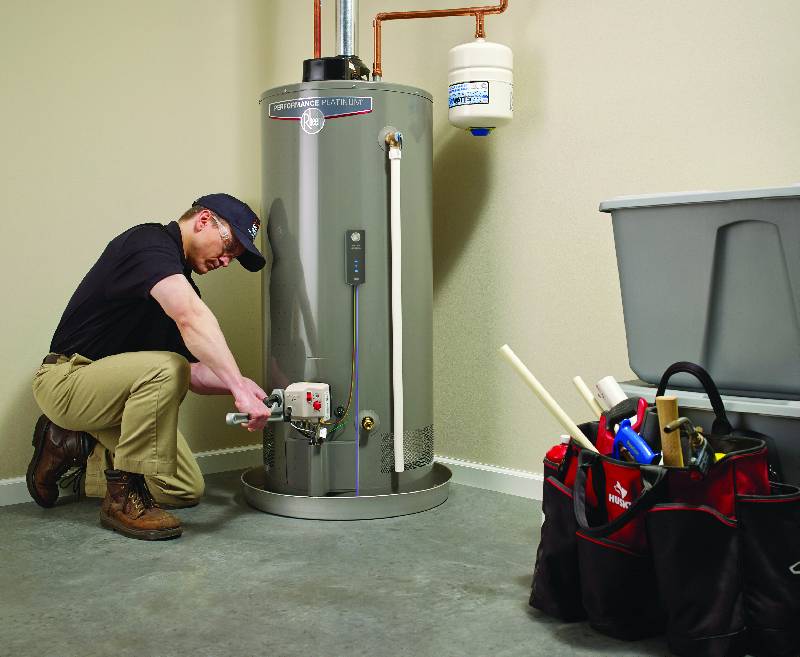Understanding Heater Problems: A Step-By-Step Guide For The Handling Standard Challenges
Understanding Heater Problems: A Step-By-Step Guide For The Handling Standard Challenges
Blog Article
What are your beliefs about Common Problems with Tank Water Heaters?

Imagine beginning your day without your routine warm shower. That currently sets an inadequate tone for the remainder of your day.
Every house requires a reputable water heater, yet just a couple of recognize exactly how to take care of one. One very easy means to maintain your hot water heater in top form is to check for mistakes on a regular basis as well as fix them as soon as they appear.
Keep in mind to shut off your hot water heater prior to smelling around for faults. These are the water heater faults you are more than likely to encounter.
Water as well warm or too chilly
Every hot water heater has a thermostat that identifies exactly how hot the water gets. If the water entering your house is too warm regardless of setting a hassle-free maximum temperature, your thermostat may be damaged.
On the other hand, too cold water might be because of a failed thermostat, a busted circuit, or incorrect gas flow. For example, if you make use of a gas water heater with a damaged pilot light, you would obtain cold water, even if the thermostat is in best problem. For electrical heaters, a blown fuse may be the wrongdoer.
Not enough warm water
Hot water heater been available in numerous dimensions, relying on your hot water needs. If you lack warm water prior to every person has had a bath, your hot water heater is also small for your family size. You need to take into consideration setting up a bigger water heater tank or choosing a tankless hot water heater, which uses up less space and also is a lot more sturdy.
Weird sounds
There are at least 5 sort of sounds you can learn through a water heater, however one of the most usual analysis is that it's time for the water heater to retire.
First of all, you must recognize with the regular appears a hot water heater makes. An electrical heater may seem various from a gas-powered one.
Standing out or banging noises generally suggest there is a piece of debris in your containers, and it's time to clean it out. On the other hand, whistling or hissing noises may simply be your shutoffs letting some stress off.
Water leaks
Leaks can originate from pipelines, water links, valves, or in the worst-case scenario, the storage tank itself. Gradually, water will corrode the storage tank, as well as find its way out. If this happens, you require to replace your hot water heater immediately.
Nevertheless, before your adjustment your entire storage tank, make certain that all pipelines are in place which each valve works perfectly. If you still require help determining a leakage, call your plumber.
Rust-colored water
Rust-colored water means one of your hot water heater parts is worn away. It could be the anode pole, or the container itself. Your plumber will certainly have the ability to determine which it is.
Warm water
No matter just how high you established the thermostat, you will not get any hot water out of a heating unit well past its prime. A water heater's effectiveness might lower with time.
You will certainly additionally get warm water if your pipes have a cross link. This implies that when you switch on a faucet, warm water from the heater moves in alongside routine, cold water. A cross link is simple to area. If your hot water faucets still pursue shutting the hot water heater shutoffs, you have a cross link.
Discoloured Water
Rust is a significant root cause of filthy or discoloured water. Corrosion within the water tank or a stopping working anode pole could create this discolouration. The anode rod secures the tank from rusting on the within as well as ought to be checked yearly. Without a rod or a correctly functioning anode rod, the hot water rapidly corrodes inside the container. Contact a professional water heater technician to identify if changing the anode rod will certainly repair the issue; otherwise, change your water heater.
Conclusion
Preferably, your hot water heater can last one decade before you need an adjustment. Nevertheless, after the 10-year mark, you might experience any of these mistakes a lot more consistently. Now, you must include a brand-new water heater to your spending plan.
How To Troubleshoot 3 Common Water Heater Problems in Twin Cities
The Water Heater Is Leaking
A leaky cold water inlet valve A loose pipe fitting A leaky temperature and pressure relief valve A corroded anode rod A cracked tank Turn Off Your Water Heater:
Shut off your gas water heater by turning the gas valve on the unit to the “OFF” position. Shut off your electric water by switching its power off at your electrical panel. Look for a two-pole breaker labeled “water heater” and turn it to the “OFF” position. Move the ball valve connected to the water heater to be perpendicular to the piping at a 90° angle. Look for the Leak:
Depending on whether the water is coming from the tank's top or bottom, you’ll want to look for the leak in different locations.
If the leak comes from the top of the tank, carefully look for water escaping from the cold water inlet valve or loose pipe fittings. Rusted hot and cold water valves can have loose connections with the tank, with water leaking out of them.
https://mspplumbingheatingair.com/blog/how-to-troubleshoot-3-common-water-heater-problems
Hopefully you enjoyed reading our topic on Common Problems with Your Home Water Heater. Thanks for spending some time to read our posting. If you liked our blog posting please remember to pass it around. We cherish reading our article about Common Problems with Your Home Water Heater.
Top plumbers, call! Report this page